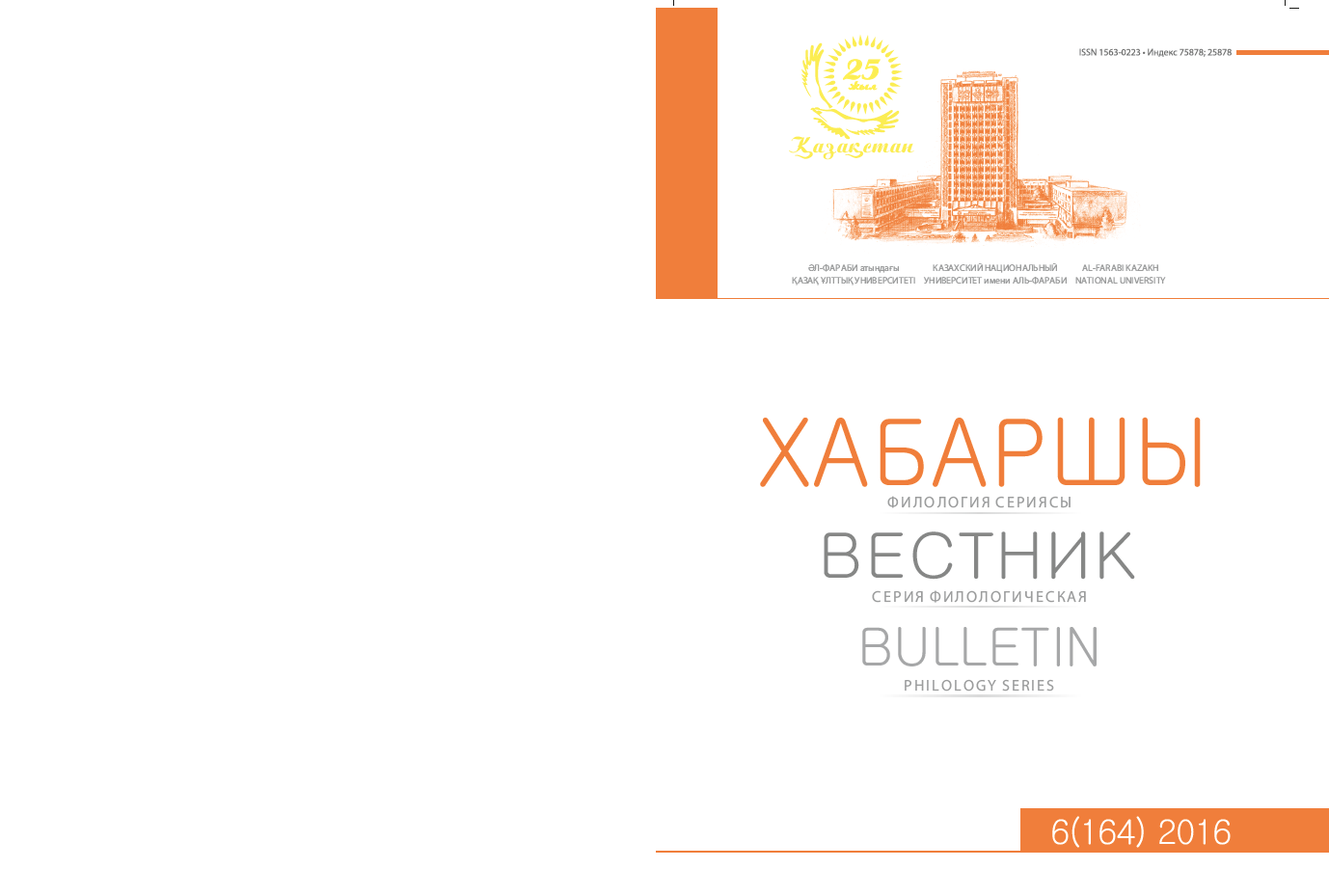Специфика романтизма прозы В. Ирвинга «Испанского периода
101 40
Аннотация
В статье рассматривается специфика романтизма творчества американского писателя ХIХ века В. Ирвинга. Проза В. Ирвинга интегрирует такие тенденции мировой литературы романтизма, как воздействие фольклорной парадигмы на уровне жанров, сюжетов, мотивов, образов и приемов. Несмотря на значительный интерес к наследию В. Ирвинга американского и европейского литературоведения, многие аспекты его творчества остаются вне исследовательского внимания, в частности, рецепция фольклорных традиций. В художественном мире прозы В. Ирвинга интеграция фольклорной и литературной эстетики, поэтики и стилистики происходит естественно и органично
Жүктелулер
Как цитировать
Iskakova A.T., S. N. (2018). Специфика романтизма прозы В. Ирвинга «Испанского периода. ҚазҰУ Хабаршысы. Филология сериясы, 164(6), 28–31. вилучено із https://philart.kaznu.kz/index.php/1-FIL/article/view/2467
Шығарылым
Бөлім
Литературоведение






